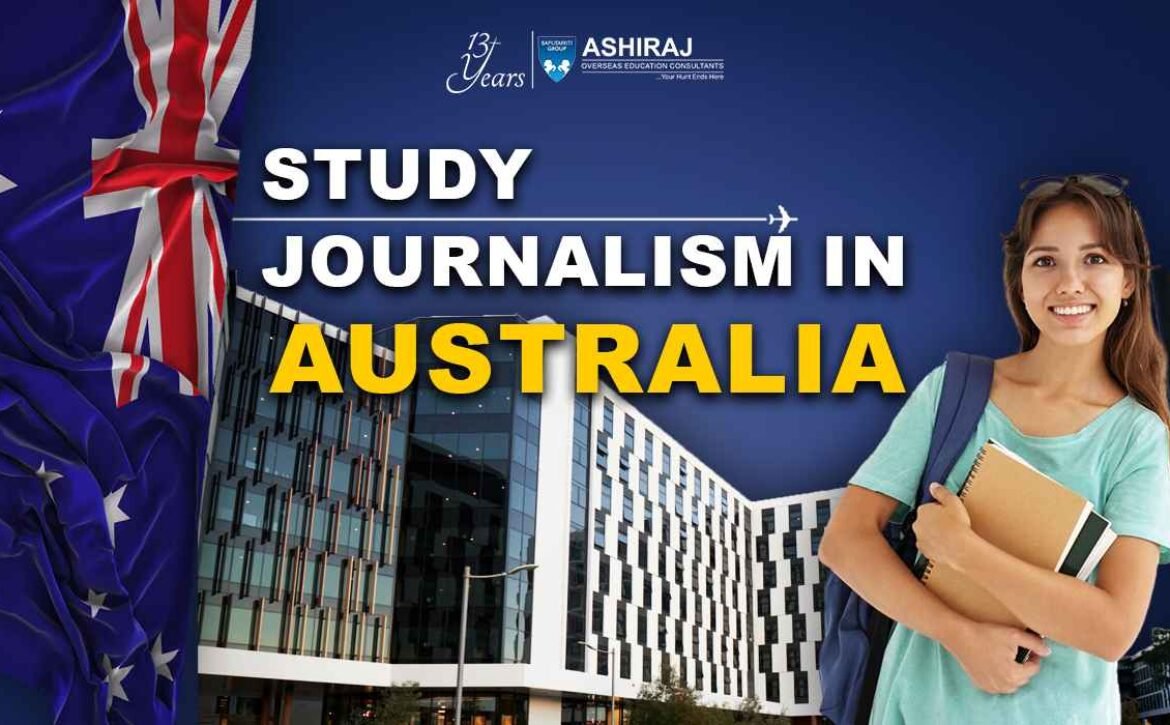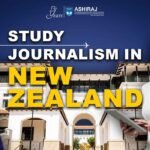
Journalism in Australia
Journalism in Australia is a vibrant and dynamic field that plays a crucial role in shaping public discourse and holding power to account. From investigative reporting to feature writing, Australian journalists cover a wide range of topics, including politics, culture, business, and sports, reflecting the diverse interests of the population. With a rich tradition of press freedom and a commitment to ethical reporting, Australian journalism strives to provide accurate, balanced, and insightful coverage to its audiences.
In recent years, Journalism in Australia has faced numerous challenges, including the rise of digital media, declining advertising revenue, and debates surrounding media ownership and regulation. Despite these challenges, Australian journalists continue to adapt to the changing media landscape, embracing new technologies and storytelling formats to reach audiences across various platforms. As the role of journalism evolves in the digital age, Australian journalists remain dedicated to upholding the principles of integrity, transparency, and accountability, ensuring that the public has access to reliable information and diverse perspectives.
Why to Study Journalism in Australia?
- Quality Education: Australian universities offer world-class journalism programs with experienced faculty and state-of-the-art facilities, ensuring students receive top-notch education.
- Diverse Curriculum: Journalism courses in Australia cover a wide range of topics, including multimedia storytelling, investigative journalism, and digital media, providing students with a comprehensive skill set.
- Practical Experience: Many Australian journalism programs emphasize hands-on learning through internships, industry placements, and real-world projects, allowing students to gain valuable experience while studying.
- Global Perspective: Australia’s multicultural society offers students the opportunity to interact with people from diverse backgrounds, preparing them for careers in a globalized media landscape.
- Networking Opportunities: Australian universities have strong connections with media organizations, providing students with networking opportunities and access to industry professionals.
- Career Prospects: Studying journalism in Australia opens up a wide range of career opportunities, including roles in traditional media outlets, digital news platforms, public relations, and communications.
- Supportive Environment: Australian universities offer a supportive and inclusive learning environment, with resources available to help students succeed academically and professionally.
- Beautiful Environment: Beyond academics, studying journalism in Australia allows students to experience the country’s stunning landscapes, vibrant cities, and rich cultural heritage, enhancing their overall university experience.
By studying journalism in Australia, students can gain the knowledge, skills, and experience needed to thrive in the dynamic and evolving field of media.
Top Universities to Study Journalism in Australia
University | QS World University Ranking 2023 | Type of University | Average Annual Fees | Programs Offered |
University of Melbourne | 1 | Public | $35,000 | Bachelor of Journalism |
Master of Journalism | ||||
Graduate Diploma of Journalism | ||||
Ph.D. in Media and Journalism | ||||
University of Sydney | 2 | Public | $40,000 | Bachelor of Media |
Master of Journalism | ||||
Graduate Certificate in Journalism | ||||
University of Queensland | 3 | Public | $38,000 | Bachelor of Journalism |
Master of Journalism Studies | ||||
Australian National University | 4 | Public | $36,000 | Bachelor of Communication and Journalism |
Master of Journalism | ||||
University of Technology Sydney | 5 | Public | $42,000 | Bachelor of Communication (Journalism) |
Master of Arts in Journalism | ||||
These top universities in Australia for Journalism offer a variety of programs catering to students’ interests and career goals. With their high QS World University Rankings in 2023, students can expect quality education and opportunities for hands-on learning. Whether pursuing undergraduate or postgraduate studies, these institutions provide a solid foundation in journalism, preparing students for diverse roles in the media industry.
Course Curriculum for Journalism in Australia
- Multimedia Storytelling: Journalism courses in Australia emphasize multimedia storytelling techniques, equipping students with skills in writing, photography, videography, and audio production to create engaging content across various platforms.
- Ethics and Law: Students learn about the ethical principles and legal frameworks that govern journalism practice in Australia, including defamation, privacy laws, and media regulations, ensuring responsible and accountable reporting.
- Digital Media: With the rise of digital technology, journalism programs in Australia incorporate modules on digital media strategies, social media management, and data journalism, preparing students for the evolving landscape of online journalism.
- Investigative Journalism: Courses often include modules on investigative journalism techniques, teaching students how to conduct in-depth research, analyze data, and uncover stories of public interest, fostering a culture of accountability and transparency.
- Industry Placements: Many journalism programs offer opportunities for internships and industry placements, allowing students to gain practical experience in newsrooms, media organizations, and communication agencies, bridging the gap between theory and practice.
- Global Perspectives: Australian journalism curriculum often includes modules on international reporting and cross-cultural communication, exposing students to diverse perspectives and preparing them for careers in a globalized media industry.
- Specialized Electives: Students have the option to choose from a range of specialized electives, such as sports journalism, political reporting, environmental journalism, and health communication, allowing them to tailor their studies to their interests and career aspirations. With a focus on practical skills, ethical standards, and global perspectives, the journalism curriculum in Australia prepares students to become versatile and responsible journalists in today’s fast-paced media landscape.
Eligibility Criteria & Admission Requirements for MS in Journalism in Australia
- Language Proficiency: Applicants must demonstrate proficiency in English by providing either IELTS or TOEFL scores. The minimum required scores for IELTS are 7.0 overall, with no band less than 6.5, while for TOEFL, a minimum score of 90 is typically required.
- Standardized Tests: Depending on the university and program, applicants may need to submit GRE or GMAT scores. The minimum required scores for GRE are typically around 155 for Verbal Reasoning and 160 for Quantitative Reasoning. For GMAT, a score of at least 600 is commonly required.
- Educational Qualifications: Applicants should hold a bachelor’s degree from a recognized institution, preferably in journalism, communication, or a related field. A minimum GPA of 3.0 on a 4.0 scale is often required.
- Passport & Student Visa: International students must have a valid passport and obtain a student visa to study in Australia. They should check the specific visa requirements and application process through the Australian Government’s Department of Home Affairs website.
- Academic Certificates: Applicants need to submit certified copies of their academic transcripts and certificates to demonstrate their educational qualifications.
- Work Experience: While not always mandatory, relevant work experience in journalism, media, or communication can strengthen an applicant’s profile. Some programs may require a minimum of one to two years of professional experience.
Test | Minimum Score |
IELTS | Overall 7.0 |
TOEFL | 90 |
GRE | Verbal: 155, Quantitative: 160 |
GMAT | 600 |
Meeting these eligibility criteria ensures that candidates possess the necessary language skills, academic background, and potential to succeed in journalism programs in Australia.
Documents Required for Studying Journalism in Australia
- Passport: A valid passport is essential for international students applying to journalism programs in Australia.
- Letters of Recommendation (LOR): Typically, two LORs from academic or professional referees are required to assess the applicant’s suitability for the program.
- Statement of Purpose (SOP): An SOP outlines the applicant’s motivations, academic background, career goals, and why they wish to pursue journalism in Australia.
- Curriculum Vitae (CV): A CV highlights the applicant’s educational qualifications, work experience, skills, and achievements relevant to journalism.
- Official High School Transcripts: Applicants need to provide official transcripts of their high school education to demonstrate their academic background.
- Educational Certificates: Certified copies of educational certificates, such as diplomas or degrees, are required to verify the applicant’s qualifications.
- Work Experience Certificate: If applicable, a work experience certificate detailing relevant professional experience in journalism or related fields is needed.
- Proof of Financial Resources: Applicants must provide evidence of sufficient financial resources to cover tuition fees, living expenses, and other costs during their stay in Australia.
Ensuring the submission of these documents is crucial for a successful application to journalism programs in Australia, facilitating the assessment of the applicant’s qualifications and readiness for the program.
Admission Process for Journalism in Australia
- Research: Begin by researching universities offering journalism programs in Australia, considering factors such as reputation, curriculum, and location.
- Check Eligibility: Ensure you meet the eligibility criteria, including language proficiency (IELTS or TOEFL scores) and academic qualifications (Bachelor’s degree with GPA requirements).
- Prepare Documents: Gather required documents, including passport, transcripts, educational certificates, letters of recommendation, statement of purpose, curriculum vitae, work experience certificate, and proof of financial resources.
- Standardized Tests: Take standardized tests such as IELTS, TOEFL, GRE, or GMAT if required by the university.
- Submit Application: Complete the online application form provided by the chosen university, attaching all necessary documents.
- Pay Application Fee: Pay the application fee as per the university’s instructions.
- Wait for Response: After submitting your application, wait for the university’s response. This may include an invitation for an interview or a decision directly regarding your admission.
- Visa Application: If accepted, apply for a student visa through the Australian Government’s Department of Home Affairs.
- Acceptance and Enrollment: Upon receiving an acceptance letter, follow the instructions provided by the university for enrollment procedures.
Following these steps diligently ensures a smooth admission process into journalism programs in Australia, paving the way for a fulfilling academic journey.
“Education is the most powerful weapon which you can use to change the world.”
Nelson Mandela
Cost of Journalism Course in Australia
- Tuition Fees: The cost of tuition for journalism programs in Australia varies depending on the university, program duration, and level of study (undergraduate or postgraduate). On average, annual tuition fees range from $25,000 to AUD 45,000.
- Living Expenses: Accommodation, food, transportation, and other living expenses contribute to the overall cost of studying in Australia. Living costs vary depending on the city and lifestyle but generally range from $20,000 to AUD 30,000 per year.
- Additional Expenses: Additional expenses may include health insurance, textbooks, study materials, and leisure activities. These costs can add up to a few thousand dollars per year.
- Scholarships and Financial Aid: International students may be eligible for scholarships, grants, or financial aid offered by Australian universities, government agencies, or private organizations. These can help offset the cost of studying journalism in Australia.
- Part-time Work: Some students choose to work part-time to supplement their income while studying. However, it’s essential to balance work and studies to ensure academic success.
Understanding the cost of studying journalism in Australia allows prospective students to budget effectively and explore financial assistance options to pursue their academic goals.
Scholarships for Journalism Courses in Australia
Scholarship Name | Amount | Application Deadline |
Australia Awards Scholarships | Full tuition fees, living allowance, and other benefits | Varies (typically between January and March) |
Endeavour Scholarships and Fellowships | $3,000 to AUD 15,000 per year towards tuition fees, travel, and living expenses | Varies (usually April or May) |
University-specific Scholarships | Varies depending on the university and program | Varies (check university website for details) |
Australian Government Research Training Program (RTP) Scholarships | Full tuition fees and stipend for living expenses | Varies (usually June or July) |
Equity Scholarships | Up to AUD 10,000 per year towards tuition fees and living expenses | Varies (check university or government websites) |
These scholarships offer financial support to both domestic and international students pursuing journalism studies in Australia. Applicants should carefully review eligibility criteria, application requirements, and deadlines for each scholarship opportunity to maximize their chances of success in funding their education.
Career Opportunities After Journalism in Australia
Job Profile | Average Salary |
News Reporter | $50,000 – AUD 70,000 per year |
Multimedia Journalist | $55,000 – AUD 75,000 per year |
Digital Content Producer | $60,000 – AUD 80,000 per year |
Editor | $60,000 – AUD 90,000 per year |
Public Relations Specialist | $65,000 – AUD 85,000 per year |
Communications Manager | $70,000 – AUD 100,000 per year |
Journalism graduates in Australia can explore diverse career opportunities across various media sectors, including print, broadcast, digital, and public relations. News reporters gather and report on news events, while multimedia journalists create content across multiple platforms. Digital content producers focus on online media production, while editors oversee content quality and accuracy. Public relations specialists manage communication between organizations and the public, while communications managers strategize and oversee internal and external communications for companies or organizations. Salaries vary based on factors such as experience, location, and employer. Pursuing a career in journalism in Australia offers a dynamic and rewarding professional path with opportunities for growth and impact in the media industry.
Frequently Asked Questions About Journalism in Australia
Some of the top universities in Australia for journalism include the University of Melbourne, University of Sydney, University of Queensland, Australian National University, and University of Technology Sydney.
Entry requirements often include a bachelor’s degree, language proficiency (IELTS or TOEFL), standardized test scores (GRE or GMAT), letters of recommendation, statement of purpose, and relevant work experience.
Yes, there are scholarships available for journalism students in Australia, including Australia Awards Scholarships, Endeavour Scholarships and Fellowships, university-specific scholarships, and Australian Government Research Training Program (RTP) Scholarships.
The average annual tuition fees for studying journalism in Australia range from $25,000 to $45,000 AUD, depending on the university and program.
Career opportunities include roles such as news reporter, multimedia journalist, digital content producer, editor, public relations specialist, and communications manager, with average salaries varying based on experience and location.
Yes, international students can work part-time while studying in Australia, typically up to 20 hours per week during the academic year and full-time during scheduled breaks.
Prior journalism experience is not always necessary, but relevant work experience can strengthen your application and provide valuable insights into the field.
The duration of journalism programs in Australia varies depending on the level of study. Bachelor’s degrees typically take three to four years to complete, while master’s programs can range from one to two years.
Yes, many journalism programs in Australia offer opportunities for internships or industry placements, allowing students to gain practical experience and build professional networks.
Differences may include curriculum focus, teaching methods, industry connections, and cultural context, with Australian journalism programs often emphasizing practical skills, ethical standards, and global perspectives.




